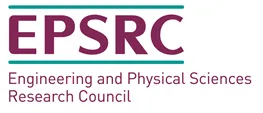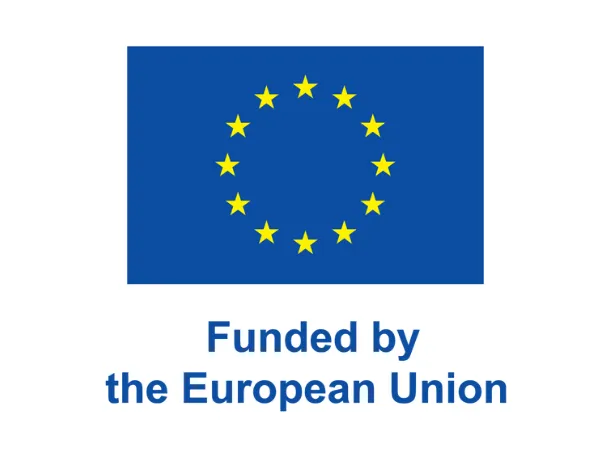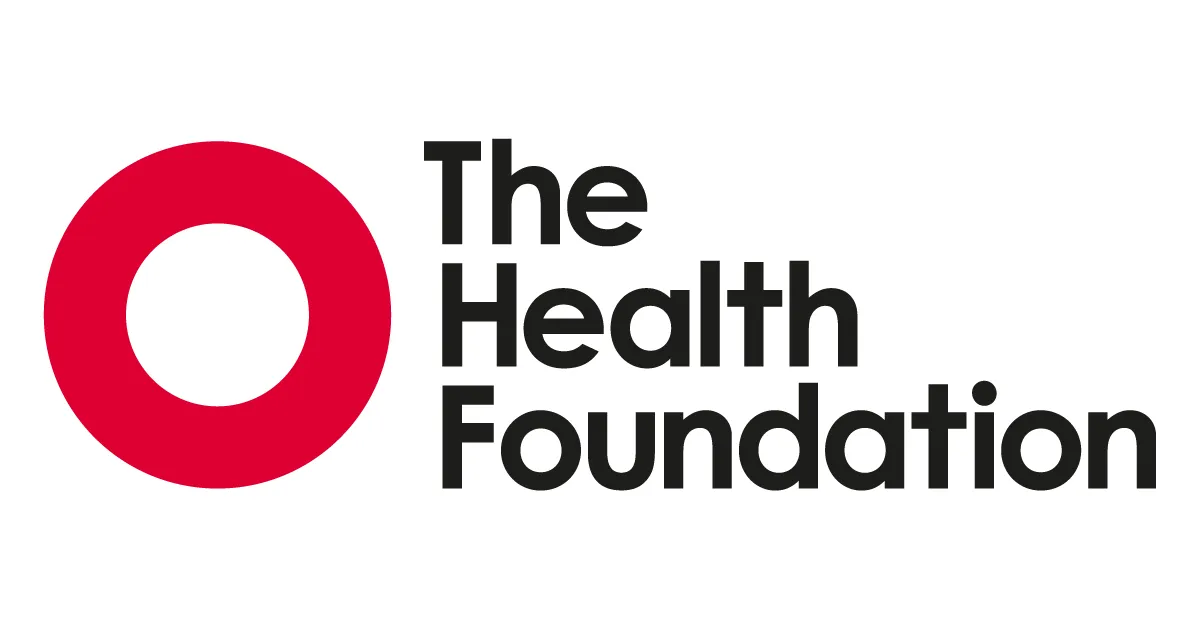Black women face the worst health inequalities in South London
Researchers have found that Black women have the most long-term health conditions of any ethnic group, in a study of South...
Our expertise includes mental health, women & children’s health, cancer screening and diagnosis, stroke, data science for population health, health systems and applied health research, genetic epidemiology and global health research. We also have expertise in complex interventions, multimorbidity and medications in primary care and an increasing body of work on public health messaging and its relationship to effective public health interventions and policy. These pages showcase our combined strengths, including key people and research groups, key projects & significant awards and our datasets and platforms.
King’s supports a number and variety of large-scale cohort studies. These provide a rich source of longitudinal phenotypic, biological and social data that can be used for studying health and wellbeing throughout the life course. The ability to link to health and other routine records, collect data and samples from consenting participants and apply cutting-edge imaging and omics technologies, places researchers at King’s in an ideal position to fully capitalise on these major research assets. The ‘Activities’ tab provides some more information on our datasets, bioresources and platforms. Where possible information on how to access them is provided through their information on the HDRUK (Health Data Research UK) gateway. This Gateway also provides searchable information on other datasets available across the UK with information about how to access them.

King's Health Partners

Impact on Urban Health

National Institute for Health Research (NIHR)

MRC Doctoral Training Partnership

Economic and Social Research Council (ESRC)

The Engineering and Physical Sciences Research Council (EPSRC)

Wellcome Trust

European Commission

Health Foundation
Researchers have found that Black women have the most long-term health conditions of any ethnic group, in a study of South...

The Cancer Epidemiology and Cancer Services Research group study inequalities in the early detection, diagnosis, experience of care and outcomes for people with cancer.

Centre for Global Health Palliative Care

The Centre for Global Mental Health (CGMH) aims to address inequities by closing the care gap, and to reduce human rights abuses experienced by people living with mental, neurological and substance use conditions, particularly in low resource settings with a view to contributing to a world where all people living with mental, neurological and substance use disorders can live a life of meaning and dignity.

The Centre for Mental Health Policy and Evaluation is a leading international centre carrying out world-class research in the areas of evaluation and implementation of mental health initiatives. The aim of the centre is to positively influence mental health policy and practice.

The Centre for Language, Discourse & Communication is a major centre for descriptive linguistics, applied linguistics and language in education.

Supporting interdisciplinary research and innovation in and for London

We are an international group of experts in public health, epidemiology and health services. We work collaboratively with colleagues around the world to conduct mixed methods research aiming to improve population oral health, reduce oral health inequalities, and strengthen the organisation and delivery of dental services.

Digital Health Research Group is a multidisciplinary group of informaticians, clinicians, psychologists and computer scientists, researching the role of data and knowledge in medical research and practice.

The Epidemiology research group focuses on epidemiological methodologies and applications in public health and health services research

NIHR Global Health Research Group on Global Health and Palliative Care (GHAP): expanding access
Project status: Ongoing

Global Maternal Health

The global surgery research taking place in King's Centre for Global Health and Health Partnerships
Project status: Ongoing

King's has been awarded £25M for NIHR Policy Research Units including PRUs in 'Palliative and end of life care', 'Addictions' and 'Health and Social Care Workforce'. King's also partners with UCL on the PRUs in 'Mental health' and 'Children and Families'. Each unit will bring together a multidisciplinary team of researchers to create a critical mass of leading experts with the ability to work dynamically with policy teams to address key research questions. The PRU researchers will respond to policy research needs and develop research programmes that provide evidence for current and emerging research priorities.

TwinsUK has received a multi-million pound award to study resilience in health and ageing, in Wellcome Leap’s Dynamic Resilience program, jointly funded by Temasek Trust.

The ESRC Centre for Society & Mental Health will improve our understanding of the complex interrelationships between society and mental health, create platforms enabling new collaborations between disciplines and with societal partners, and work closely with users, communities, practitioners, and policy makers to design and assess novel evidence-based strategies for prevention and intervention.

The National Institute for Health Research Health Protection Research Unit (HPRU) in Emergency Preparedness and Response is a partnership between King’s College London, the UK Health Security Agency and the University of East Anglia. The Unit was set up on 1 April 2014 and following two rounds of renewal, it is funded until 31 March 2025. To date, we have received core funding of over £9million from the NIHR. We are one of thirteen HPRUs funded by the NIHR.
![HERON-Ful_logo_2014[1]](/departmentalimages/research/heron/HERON-Ful-logo-2014[1].x15f31fc9.jpg?width=380&height=215&fit=crop&f=webp)
The HERON Network is funded by the Wellcome Trust and is currently led by Professor Stephani Hatch, Dr Cerisse Gunasinghe and Dr Charlotte Woodhead at King’s College London. The aims of the Network are to provide a forum for health practitioners, researchers and community members to share experiences and information and work together to further understand the problems influencing health inequalities and to highlight and work towards reducing health inequalities through integrated research and engagement activities.

The RADAR-CNS project has collected data from smartphones and wearables to assess how remote measurement technology could help manage depression, multiple sclerosis and epilepsy. The results of a six-year project involving 22 organizations across Europe and the United States have provided landmark insights into how technology in the form of wearables and smartphones could transform how we monitor and manage these conditions. The Remote Assessment of Disease and Relapse – Central Nervous System Consortium (RADAR-CNS) was led jointly by King’s College London and Janssen Pharmaceutica NV. Since its launch in 2016, RADAR-CNS has recruited 1,450 participants in a study to answer questions that are central to harnessing the potential of wearable devices to measure and predict depression, MS and epilepsy. Collectively, these conditions affect more than 330 million people globally, are a major cause of disability and have an enormous impact on wellbeing.

The ZOE COVID Symptom Study App, led by Tim Spector OBE, Professor of Genetic Epidemiology at King’s, has more than 4 million users and is now the world’s largest ongoing study into the virus. It has shaped health policy and tracked disease hotspots. Data from the app helped researchers discovered that loss of smell and taste (anosmia) was a key predictive symptom for the virus.

The NHS-Galleri Trial is the world's largest blood test trial that could 'revolutionise' cancer treatment. It is asking more than 140,000 volunteers aged between 50-77 to come forward. Participants will be asked to give a blood sample at a locally based mobile clinic; they will then be invited back after one year, and then again after two years, to give further samples. The aim is to screen for cancers which are typically difficult to identify early, such as bowel, lung, pancreatic and throat cancers.

The embryo, foetus and new born child are very sensitive to external influences during development. These can arise from problems with the mother's health, her lifestyle, her physical environment, medication, the placenta not working properly, complications during birth, or as consequence of being born too early. Adversity in these periods of developmental vulnerability can have persistent effects on the long-term health of the child, including physical and mental health disorders. We also know that if a mother has complications in pregnancy, that she herself may suffer from increased risk of ill-heath in later life, for example cardiovascular disease, diabetes or mental health problems. eLIXIR is a prospective collection of blood samples from routine antenatal and neonatal appointments and is due to begin collecting in 2018.

CRIS provides researcher access to a live de-identified copy of SLaM's electronic health record, currently representing over 400,000 mental health service users. Structured and text fields are represented, the latter enhanced through a range of natural language processing algorithms. CRIS has also been linked to a range of external data resources, listed on http://www.maudsleybrc.nihr.ac.uk/facilities/clinical-record-interactive-search-cris . CRIS data are held within SLaM's firewall and are used within a patient-led governance framework with Caldicott and Research Ethics approval.

The South East London Community Health (SELCoH) study is an epidemiological cohort study designed to collect accurate and up to date information about the physical and mental health of people living within the local communities of Southwark and Lambeth.

Lambeth DataNet is a resource aimed at bringing better healthcare to everyone in the area. It uses anonymous information* collected from GP patient records to help plan and improve healthcare services

This continuously ascertained, record-level dataset audit collects information on stroke patients in England, Wales and Northern Ireland in acute hospital, and follows recovery, rehabilitation, and outcomes at the point of 6 month assessment.

TwinsUK follows the lives of adult twins to understand how genetic variation relates to health and ageing. Over 30 years, collected data comprises self-reported, physical and cognitive measures, biochemical measures, 'omics and a wealth of biosamples.

The Twins Early Development Study (TEDS), is one of the world’s largest twin cohorts, investigating how genetic and environmental factors shape individual differences in cognitive and learning abilities, behaviour and emotions in the context of typical development.

King's Health Partners Cancer Biobank collects blood, tissue and urine samples from patients with a range of cancer types who are referred to Guy's & St Thomas' NHS Trust. The Breast Biobank alone has been providing tumour samples with matching clinico-pathological data for research studies since the 1970's. Other tumour types including lung, head and neck, prostate, UGI, bladder, colorectal, lymphoma and MPD have been added since 2008. The Biobank is accessible to both academic groups and commercial companies.

Fractionated blood products from patients with HIV, hepatitis C viral infections and others with bacteraemias.

King's Brain Bank is also part of the Brains for Dementia Research initiative, in which brain tissue from regularly assessed individuals provides the best resource for scientists working to understand dementia. By comparing changes in the brain with progression of memory impairment we support the development of more effective treatments.
Our expertise includes mental health, women & children’s health, cancer screening and diagnosis, stroke, data science for population health, health systems and applied health research, genetic epidemiology and global health research. We also have expertise in complex interventions, multimorbidity and medications in primary care and an increasing body of work on public health messaging and its relationship to effective public health interventions and policy. These pages showcase our combined strengths, including key people and research groups, key projects & significant awards and our datasets and platforms.
King’s supports a number and variety of large-scale cohort studies. These provide a rich source of longitudinal phenotypic, biological and social data that can be used for studying health and wellbeing throughout the life course. The ability to link to health and other routine records, collect data and samples from consenting participants and apply cutting-edge imaging and omics technologies, places researchers at King’s in an ideal position to fully capitalise on these major research assets. The ‘Activities’ tab provides some more information on our datasets, bioresources and platforms. Where possible information on how to access them is provided through their information on the HDRUK (Health Data Research UK) gateway. This Gateway also provides searchable information on other datasets available across the UK with information about how to access them.

King's Health Partners

Impact on Urban Health

National Institute for Health Research (NIHR)

MRC Doctoral Training Partnership

Economic and Social Research Council (ESRC)

The Engineering and Physical Sciences Research Council (EPSRC)

Wellcome Trust

European Commission

Health Foundation
Researchers have found that Black women have the most long-term health conditions of any ethnic group, in a study of South...

The Cancer Epidemiology and Cancer Services Research group study inequalities in the early detection, diagnosis, experience of care and outcomes for people with cancer.

Centre for Global Health Palliative Care

The Centre for Global Mental Health (CGMH) aims to address inequities by closing the care gap, and to reduce human rights abuses experienced by people living with mental, neurological and substance use conditions, particularly in low resource settings with a view to contributing to a world where all people living with mental, neurological and substance use disorders can live a life of meaning and dignity.

The Centre for Mental Health Policy and Evaluation is a leading international centre carrying out world-class research in the areas of evaluation and implementation of mental health initiatives. The aim of the centre is to positively influence mental health policy and practice.

The Centre for Language, Discourse & Communication is a major centre for descriptive linguistics, applied linguistics and language in education.

Supporting interdisciplinary research and innovation in and for London

We are an international group of experts in public health, epidemiology and health services. We work collaboratively with colleagues around the world to conduct mixed methods research aiming to improve population oral health, reduce oral health inequalities, and strengthen the organisation and delivery of dental services.

Digital Health Research Group is a multidisciplinary group of informaticians, clinicians, psychologists and computer scientists, researching the role of data and knowledge in medical research and practice.

The Epidemiology research group focuses on epidemiological methodologies and applications in public health and health services research

NIHR Global Health Research Group on Global Health and Palliative Care (GHAP): expanding access
Project status: Ongoing

Global Maternal Health

The global surgery research taking place in King's Centre for Global Health and Health Partnerships
Project status: Ongoing

King's has been awarded £25M for NIHR Policy Research Units including PRUs in 'Palliative and end of life care', 'Addictions' and 'Health and Social Care Workforce'. King's also partners with UCL on the PRUs in 'Mental health' and 'Children and Families'. Each unit will bring together a multidisciplinary team of researchers to create a critical mass of leading experts with the ability to work dynamically with policy teams to address key research questions. The PRU researchers will respond to policy research needs and develop research programmes that provide evidence for current and emerging research priorities.

TwinsUK has received a multi-million pound award to study resilience in health and ageing, in Wellcome Leap’s Dynamic Resilience program, jointly funded by Temasek Trust.

The ESRC Centre for Society & Mental Health will improve our understanding of the complex interrelationships between society and mental health, create platforms enabling new collaborations between disciplines and with societal partners, and work closely with users, communities, practitioners, and policy makers to design and assess novel evidence-based strategies for prevention and intervention.

The National Institute for Health Research Health Protection Research Unit (HPRU) in Emergency Preparedness and Response is a partnership between King’s College London, the UK Health Security Agency and the University of East Anglia. The Unit was set up on 1 April 2014 and following two rounds of renewal, it is funded until 31 March 2025. To date, we have received core funding of over £9million from the NIHR. We are one of thirteen HPRUs funded by the NIHR.
![HERON-Ful_logo_2014[1]](/departmentalimages/research/heron/HERON-Ful-logo-2014[1].x15f31fc9.jpg?width=380&height=215&fit=crop&f=webp)
The HERON Network is funded by the Wellcome Trust and is currently led by Professor Stephani Hatch, Dr Cerisse Gunasinghe and Dr Charlotte Woodhead at King’s College London. The aims of the Network are to provide a forum for health practitioners, researchers and community members to share experiences and information and work together to further understand the problems influencing health inequalities and to highlight and work towards reducing health inequalities through integrated research and engagement activities.

The RADAR-CNS project has collected data from smartphones and wearables to assess how remote measurement technology could help manage depression, multiple sclerosis and epilepsy. The results of a six-year project involving 22 organizations across Europe and the United States have provided landmark insights into how technology in the form of wearables and smartphones could transform how we monitor and manage these conditions. The Remote Assessment of Disease and Relapse – Central Nervous System Consortium (RADAR-CNS) was led jointly by King’s College London and Janssen Pharmaceutica NV. Since its launch in 2016, RADAR-CNS has recruited 1,450 participants in a study to answer questions that are central to harnessing the potential of wearable devices to measure and predict depression, MS and epilepsy. Collectively, these conditions affect more than 330 million people globally, are a major cause of disability and have an enormous impact on wellbeing.

The ZOE COVID Symptom Study App, led by Tim Spector OBE, Professor of Genetic Epidemiology at King’s, has more than 4 million users and is now the world’s largest ongoing study into the virus. It has shaped health policy and tracked disease hotspots. Data from the app helped researchers discovered that loss of smell and taste (anosmia) was a key predictive symptom for the virus.

The NHS-Galleri Trial is the world's largest blood test trial that could 'revolutionise' cancer treatment. It is asking more than 140,000 volunteers aged between 50-77 to come forward. Participants will be asked to give a blood sample at a locally based mobile clinic; they will then be invited back after one year, and then again after two years, to give further samples. The aim is to screen for cancers which are typically difficult to identify early, such as bowel, lung, pancreatic and throat cancers.

The embryo, foetus and new born child are very sensitive to external influences during development. These can arise from problems with the mother's health, her lifestyle, her physical environment, medication, the placenta not working properly, complications during birth, or as consequence of being born too early. Adversity in these periods of developmental vulnerability can have persistent effects on the long-term health of the child, including physical and mental health disorders. We also know that if a mother has complications in pregnancy, that she herself may suffer from increased risk of ill-heath in later life, for example cardiovascular disease, diabetes or mental health problems. eLIXIR is a prospective collection of blood samples from routine antenatal and neonatal appointments and is due to begin collecting in 2018.

CRIS provides researcher access to a live de-identified copy of SLaM's electronic health record, currently representing over 400,000 mental health service users. Structured and text fields are represented, the latter enhanced through a range of natural language processing algorithms. CRIS has also been linked to a range of external data resources, listed on http://www.maudsleybrc.nihr.ac.uk/facilities/clinical-record-interactive-search-cris . CRIS data are held within SLaM's firewall and are used within a patient-led governance framework with Caldicott and Research Ethics approval.

The South East London Community Health (SELCoH) study is an epidemiological cohort study designed to collect accurate and up to date information about the physical and mental health of people living within the local communities of Southwark and Lambeth.

Lambeth DataNet is a resource aimed at bringing better healthcare to everyone in the area. It uses anonymous information* collected from GP patient records to help plan and improve healthcare services

This continuously ascertained, record-level dataset audit collects information on stroke patients in England, Wales and Northern Ireland in acute hospital, and follows recovery, rehabilitation, and outcomes at the point of 6 month assessment.

TwinsUK follows the lives of adult twins to understand how genetic variation relates to health and ageing. Over 30 years, collected data comprises self-reported, physical and cognitive measures, biochemical measures, 'omics and a wealth of biosamples.

The Twins Early Development Study (TEDS), is one of the world’s largest twin cohorts, investigating how genetic and environmental factors shape individual differences in cognitive and learning abilities, behaviour and emotions in the context of typical development.

King's Health Partners Cancer Biobank collects blood, tissue and urine samples from patients with a range of cancer types who are referred to Guy's & St Thomas' NHS Trust. The Breast Biobank alone has been providing tumour samples with matching clinico-pathological data for research studies since the 1970's. Other tumour types including lung, head and neck, prostate, UGI, bladder, colorectal, lymphoma and MPD have been added since 2008. The Biobank is accessible to both academic groups and commercial companies.

Fractionated blood products from patients with HIV, hepatitis C viral infections and others with bacteraemias.

King's Brain Bank is also part of the Brains for Dementia Research initiative, in which brain tissue from regularly assessed individuals provides the best resource for scientists working to understand dementia. By comparing changes in the brain with progression of memory impairment we support the development of more effective treatments.